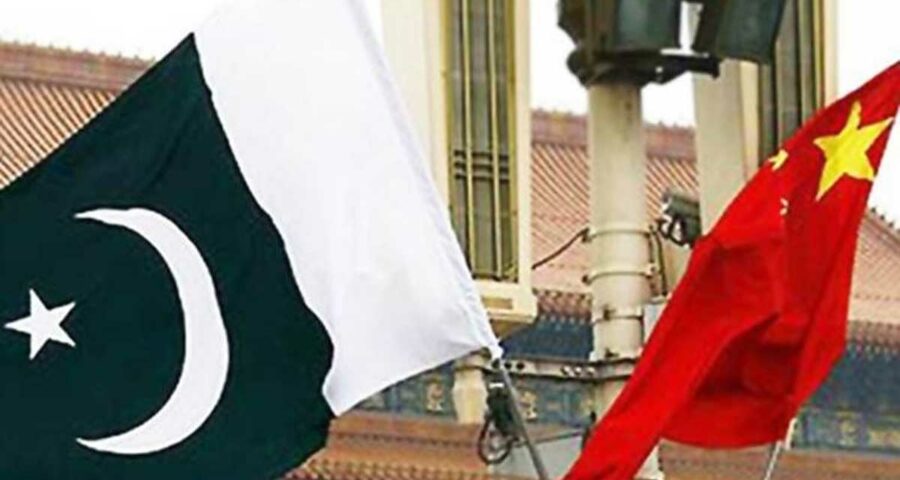The decision was taken during a meeting between Chinese Foreign Minister Wang Yi and his Pakistan counterpart Shah Mahmood Qureshi in the southwestern the Chinese city of Chengdu on Saturday.
China and Pakistan have decided to launch “joint actions” in Afghanistan to stop the war-torn country from becoming a “hotbed for terrorism” and drive out terrorist forces from there, the Chinese Foreign Ministry said on Monday.
The decision was taken during a meeting between Chinese Foreign Minister Wang Yi and his Pakistan counterpart Shah Mahmood Qureshi in the southwestern the Chinese city of Chengdu on Saturday.
During the meeting, Wang and Qureshi “decided to launch joint actions on Afghan issue,” Foreign Ministry spokesman Zhao Lijian told a media briefing here.
Also, a press release posted on the website of the Chinese Foreign Ministry said Wang in his talks with Qureshi “emphasised that as Afghanistan’s neighbours, China and Pakistan are directly impacted by the Afghan situation. It is necessary for the two countries to strengthen cooperation and respond to changes”.
This was “one important agenda during Qureshi’s visit to China,” said the press release titled ‘China and Pakistan Decide to Launch Joint Actions on Afghan Issue’.
“After in-depth communication, we decided to launch joint actions,” which included making “every effort to pursue peace, give top priority to avoiding the spread of war, and prevent Afghanistan from spiralling into a full-scale civil war,” Wang said.
“We will work together to combat terrorism and push all major forces in Afghanistan to draw a clear line against terrorism, firmly combat the East Turkestan Islamic Movement (ETIM) and other terrorist forces, and resolutely stop Afghanistan from becoming a hotbed of terrorism,” Wang said.
China and Pakistan will actively promote peace through talks, advance effective intra-Afghan talks, and take substantive steps towards political reconciliation and building a broad-based and inclusive political framework, he said.
He said both nations will promote coordination and cooperation among Afghanistan’s neighbouring countries, explore the building of Afghanistan-related cooperation platforms, and help Afghanistan achieve peaceful reconstruction and live in amity with all its neighbours.
China, which wants the Taliban to sever links with terrorist groups in Afghanistan, has stepped up its diplomacy to reduce frictions between Pakistan and Afghanistan over Islamabad’s backing for the Taliban and settle for a power-sharing settlement with the Afghan government.
Wang-Qureshi meeting took place under the shadow of the recent bomb attack on a shuttle bus carrying Chinese engineers at Dasu area of Upper Kohistan district of Khyber Pakhtunkhwa province where a Chinese company is building a 4320-mw dam on the Indus river.
Nine Chinese personnel were killed and 27 others injured.
China had rushed a special team amid confusing signals from Pakistan that it could be a gas blast. Islamabad later admitted it as a bomb blast stating that an explosive substance was found.
The Dasu bus blast had accentuated Beijing’s concerns as thousands of Chinese personnel worked in the USD 60 billion China-Pakistan installations, projects and personnel in Pakistan.
While Pakistan is concerned over the Tehreek-e-Taliban Pakistan (TTP), which has been waging an insurgency against the country for several years, China is worried over the regrouping the Uyghur militants from Xinjiang who operate under the aegis of ETIM, which Beijing alleges has links with Al-Qaeda.
Observers say there is confusion as no one has claimed responsibility for the incident, raising questions whether it has an Afghan connection.
Although no organisation has claimed responsibility yet, Chinese experts believed that the terrorist groups such as the Pakistani Taliban or the ETIM were behind the attack, a report in the state-run Global Times said on Monday.
Due to a changing environment in Afghanistan, the ETIM terrorists may have fled to Pakistan where they collaborated with the Pakistani Taliban to launch an attack on China, the paper quoted experts as saying.
“But they also warned that if the situation in Afghanistan further deteriorates, Pakistan as well as the China-Pakistan Economic Corridor (CPEC) will be in danger,” it said.
The 12th report of the Analytical Support and Sanctions Monitoring Team of the UN issued last month confirmed the presence of the ETIM militants in Afghanistan.
“The ETIM consists of several hundred members, located primarily in Badakhshan and neighbouring Afghan provinces,” said the report, which was submitted to the UN Security Council.
Source: Read Full Article


